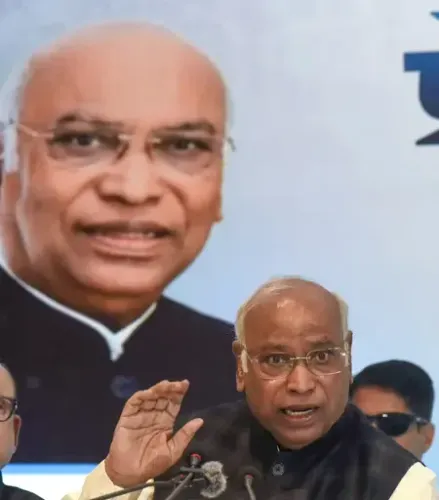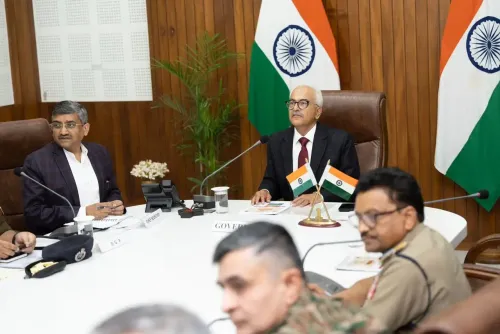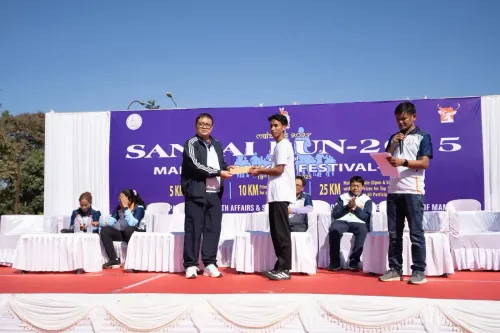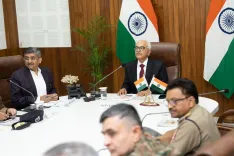Who is Neel Purohit, the Alleged Mastermind of an International Cyber-Slavery Network?

Synopsis
Key Takeaways
- Neel Purohit arrested for leading a cyber slavery network.
- Over 1,000 individuals trafficked to Southeast Asia.
- Use of social media for luring victims.
- International collaboration is crucial in tackling cybercrime.
- More than 4,000 Indians rescued in joint operations.
Ahmedabad, Nov 18 (NationPress) The Cyber Centre of Excellence in Gujarat has successfully apprehended Neel Purohit, also known as 'The Ghost', who is believed to be the mastermind behind an international “cyber slavery” network operating in Myanmar’s KK Park and Cambodia.
Deputy Chief Minister Harsh Sanghavi revealed that this cutting-edge facility, which cost Rs 500 crore to establish, has dismantled a global syndicate that deceived young Indians with fraudulent overseas job opportunities, trafficking them into cyber-fraud operations managed by Chinese mafias in Southeast Asia.
Officials stated that this operation was executed under the guidance of Chief Minister Bhupendra Patel, CID Crime DGP K.L.N. Rao, and Additional DGP Parikshita Rathod. The law enforcement team arrested Purohit in Gandhinagar while he was allegedly trying to flee to Malaysia. Two of his associates—sub-agents Hitesh Somaiya and Sonal Phaddu—were also apprehended, along with two other suspects, Bhavdeep Jadeja and Hardeep Jadeja.
A court has sanctioned a 14-day remand for Purohit. Investigations indicate that Purohit orchestrated a highly structured international trafficking network, overseeing over 126 sub-agents across India, while also maintaining connections with more than 30 Pakistani handlers and over 100 Chinese and foreign corporate HR firms that provided manpower for cyber-fraud operations.
According to police reports, he has trafficked or facilitated the trafficking of over 1,000 individuals to Cambodia, Myanmar, Vietnam, and Thailand, frequently routing victims through Dubai, Laos, and Sri Lanka.
More than 500 individuals from India, Sri Lanka, Bangladesh, Nepal, Pakistan, Nigeria, Egypt, Cameroon, Benin, and Tunisia were forced into cyber slavery through routes he organized.
The Cyber Centre indicated that the accused utilized Telegram, Instagram, and Facebook to ensnare victims with promises of lucrative data-entry positions abroad, confiscated their passports, and transported them illegally across borders—often via the Moei River into Myanmar’s Myawaddy region, known for crypto scams, phishing schemes, romance frauds, and Ponzi scams.
Victims were coerced into committing cybercrimes under threats of physical and psychological harm. For each trafficked person, Purohit reportedly earned between $2,000 and $4,500, distributing 30-40% to sub-agents and laundering the money through mule bank accounts and various crypto wallets.
This arrest is crucial, as over 4,000 Indians have been rescued in collaborative efforts by India, Thailand, and Myanmar in the last three years. Several survivors identified Purohit in their statements, aiding investigators in recognizing him as a pivotal figure in the global operation.
Deputy Chief Minister Harsh Sanghavi commended the Cyber Centre of Excellence team, describing the crackdown as “a landmark step” in safeguarding citizens from evolving cyber threats and organized crime syndicates.









